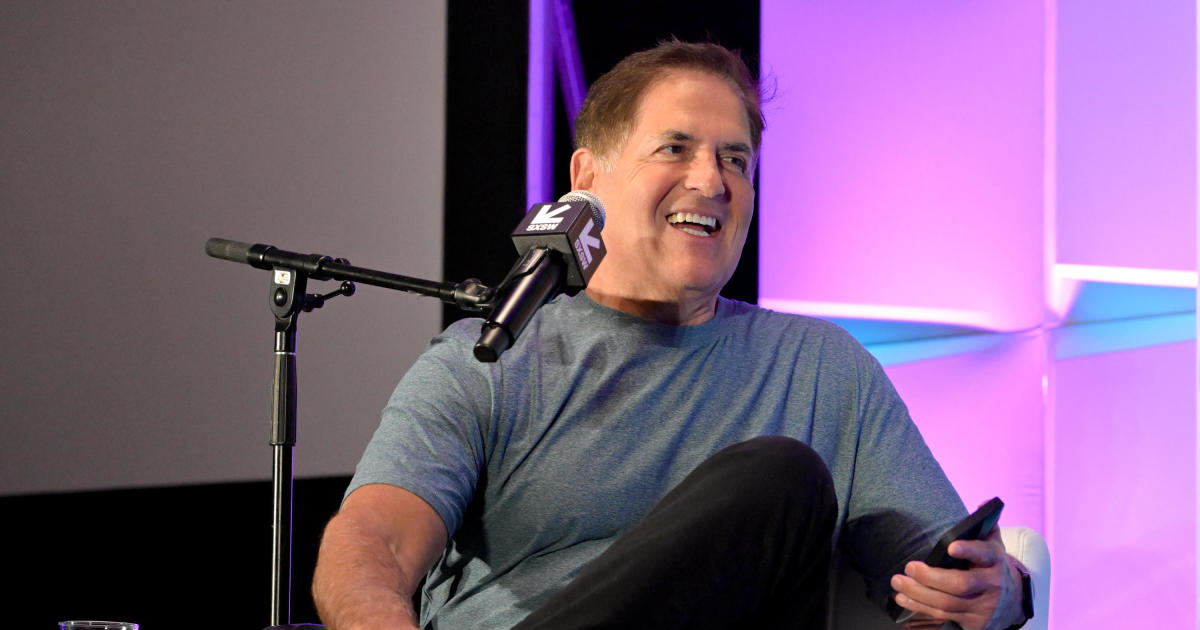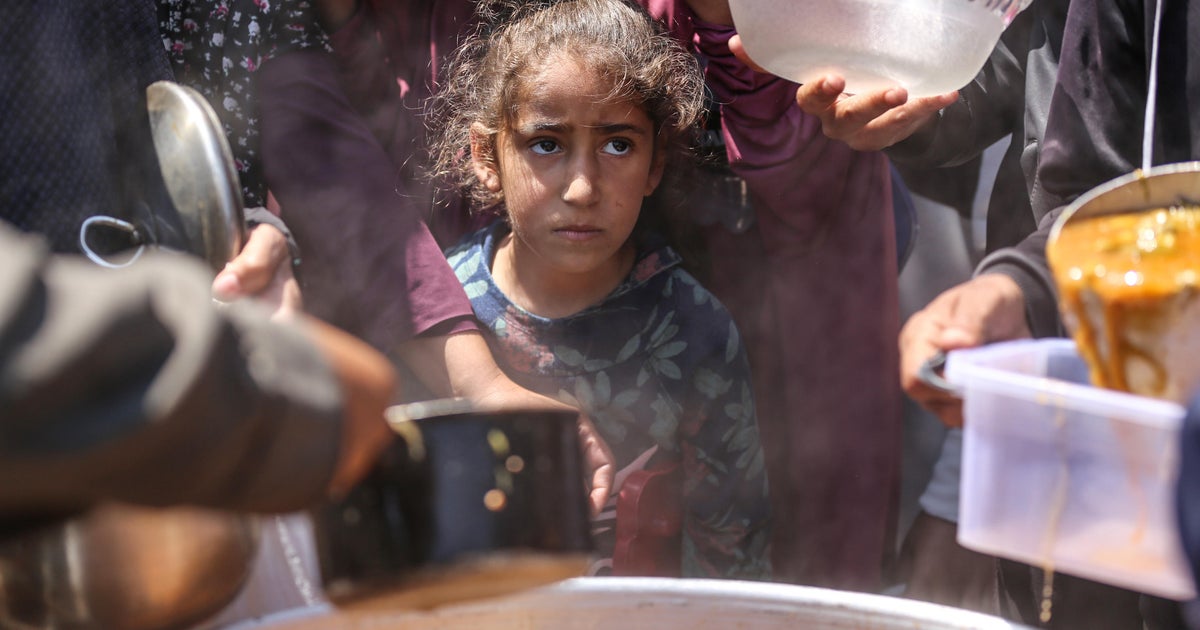Transcript: Scott Gottlieb discusses coronavirus on "Face the Nation," August 2, 2020
The following is a transcript of an interview with former FDA Commissioner Scott Gottlieb that aired Sunday, August 2, 2020, on "Face the Nation."
JOHN DICKERSON: And we are back with former FDA commissioner Scott Gottlieb, who joins us from Westport, Connecticut. Good morning. I want to--
DR. SCOTT GOTTLIEB: Good morning.
JOHN DICKERSON: I want to start Dr. Gottlieb with- Dr. Anthony Fauci said it is impossible to predict where the arc of this crisis will go. What's your assessment of that?
DR. GOTTLIEB: Well, I think what we're likely to see is regional outbreaks with compensatory action that's going to get those outbreaks under control across the country like we've been seeing. We saw a very dense epidemic in the Northeast. They got it under control with very strict lockdowns. We then saw a dense epidemic in the Sun Belt states. They got it under control. They're starting to get it under control. We're seeing declines in those states with some actions that they took, but more likely with the collective action of individuals starting to withdraw from activity a little bit and wear masks more and express more vigilance. I think we're likely to see this continue where there is going to be these epidemics in different parts of the country and in compensatory action to get it under control. And it's going to be this slow burn, unfortunately, for the rest of the year. So as a Sun Belt states are declining right now, we're seeing infection rates pick up in the Midwest. And right now, the rate of infection across the country, if you look at some of the models, is probably one in 70 individuals right now are actively infected. So there's a lot of infection across the entire United States.
JOHN DICKERSON: Is what's happening in the Midwest basically the same old story, just a version of what was happening in the Northeast and then South and West? It's just their turn now?
DR. GOTTLIEB: I think there's some truth to that. I think there's a lot of infection around the country. It's going to be hard to keep the virus out. Even in the Northeast right now, it's going to be hard for that part of the country not to get re-seeded, and so you're just seeing it rotate through different parts of the country. I think after parts of the country become affected by this, you do see some increased vigilance and hopefully that's going to persist. Hopefully now in states like Texas and Florida and Arizona, you are going to see consumers adopt masks more going forward. You see that in some of the survey data right now. And the question is, can the combination of some limited mitigation, some targeted mitigation, like keeping bars closed, keeping certain indoor congregate venues that aren't really pivotal to the economic activity of a region closed with universal adherence to masks or greater adherence to masks, is that enough to keep the virus out? If you look at a state like Connecticut right now, where I am, right now infection rates are very low. They've kept bars close. They've kept restaurants limited. People are wearing masks here, but at the same time, they've reopened parts of the economy, and so is that enough? Is that combination of masks with some targeted mitigation enough to keep the virus out? We certainly hope so. I mean, if we- if it is then we've sort of found a happy medium between strict lockdowns and just letting it spread unchecked that could keep this at bay.
JOHN DICKERSON: So it seems like people are having to experience it a little bit because it's- still you hear White House public health officials imploring people, telling them this can hit you. We're seven months into this. Does it- what- how does it strike you that- that we're still having to get this message out, that this can come to your community as well?
DR. GOTTLIEB: Well, look, I think- I think what we take for granted is that when you had the epidemic in the Northeast and New York was experiencing really a travesty, a lot of parts of the country were shut down but were largely unaffected by this. And I think there is some element of the fact that until you're touched by it, you really don't, you know, appreciate the full significance of this. And so I think that there is going to be some residual caution on the part of the states that now have been affected. I hope it's not the case that every part of the country needs to have some level of epidemic in order to get collective action that's going to keep this at bay, but there is some element of that. That said, I think that now that more people have seen how devastating this can be and how dangerous it is, I think you're going to see some more residual action on the part of consumers across the entire country. I mean, part of what makes us great as a nation is our aversion to regulation and our individualism and the fact that we give so much control to local governments. But in the setting of a national pandemic, where you want more central top-down policymaking to try to keep this at bay across the entire United States and more of a uniform fashion, the things that make us great and make us dynamic as an economy work against us in this kind of a setting.
JOHN DICKERSON: We're about to head into the school season. What's your feeling about what should be done and- and how close are we to actually doing that?
DR. GOTTLIEB: Well, look, I think we should try to open the schools. We should lean forward here because of all the reasons why it's important to get kids back into the classroom. Here in Connecticut we probably will have the opportunity to open schools. The positivity rate is very low. They have good testing and tracking in place, but we need to prevent outbreaks in the schools. There's a lot we don't know about this virus. The virus probably hasn't infected that many kids relative to flu certainly, and so we don't want to see this become epidemic in children. I think this is complicated by the fact that there's information on both sides of this debate to really sort of inform the debate and harden positions. We've seen schools open in other countries successfully without outbreaks, albeit with a lot of precaution put into place. And we've seen summer camps open here with pretty dense outbreaks. There was a report out of the CDC in Georgia where a summer camps opened. Fifty eight percent of the campers were tested, 70- I think 76% were infected. We saw schools open in Israel that triggered large outbreaks in those schools and may have been behind a resurgence in the epidemic in that country. So there's anecdotes and experiences on both sides of this debate, I think, to- to counsel enough caution that if we do reopen schools, and I think we should try to, and I think many parts of the country will have that opportunity, we should take every precaution to try to prevent outbreaks. And that also includes protecting teachers. Teachers need to be thought of as front line workers in these situations and given- given proper protective equipment and ways to keep themselves safe in the classroom.
JOHN DICKERSON: We got 15 seconds left. Dr. Gottlieb, any optimism you see in these numbers?
DR. GOTTLIEB: I think we can be optimistic, perhaps, that we're going to have probably a less significant flu season than we anticipated. Flu isn't epidemic in the Southern Hemisphere, and maybe we've found a happy medium between strict lockdowns and just letting the spread unfettered. And we've found sort of the middle ground that will keep this at bay. When you look at certain states like Connecticut and some others as well, I just happen to be familiar with Connecticut, where they've taken a mix of options to keep this at bay, targeted mitigation with universal masking.
JOHN DICKERSON: All right, Dr. Scott Gottlieb, thanks so much again for being with us. And we'll be back in a moment.



